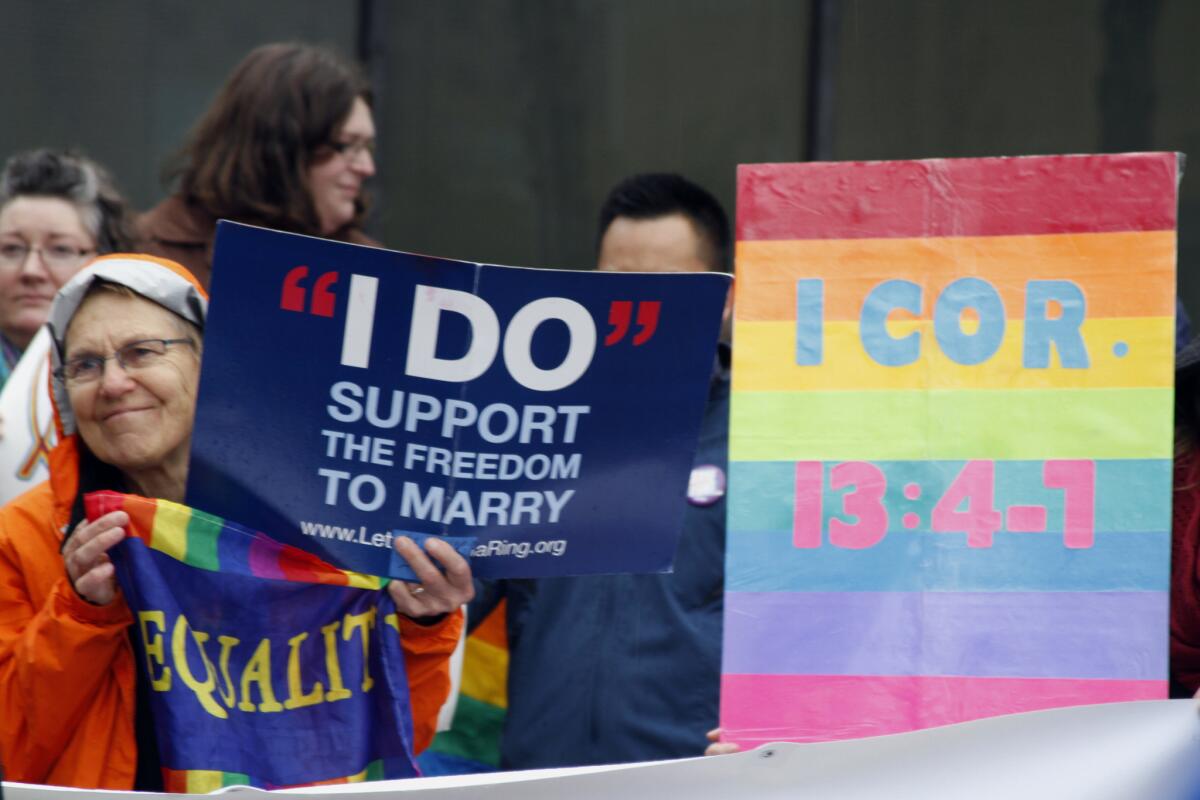Federal judge adds Alaska to list of same-sex marriage states

- Share via
Add Alaska to the list of states allowing same-sex marriages, the product of a federal judge’s ruling issued Sunday.
The ruling was something of a foregone conclusion because the federal appeals court for the 9th Circuit, which has jurisdiction over Alaska and eight other western states, ruled last week that same-sex marriage bans violate the constitutional rights of gay couples. Still, the ruling by District Judge Timothy Burgess sped up the process of legalizing the marriages in Alaska, which could otherwise have taken many weeks.
The ruling, which followed a hearing Friday, included an immediate injunction barring Alaska officials from enforcing the state’s current law against same-sex marriages, adopted in 1998.
Gov. Sean Parnell’s office told the Associated Press the state would appeal.
Alaska could ask the 9th Circuit to stay the judge’s ruling, pending the appeal. But since the 9th Circuit already has ruled on the issue in cases from Nevada and Idaho, Alaska’s chances are slim.
With the 9th Circuit’s ruling, 35 states have now either legalized same-sex marriage legislatively or are under the jurisdiction of federal courts that have ruled bans on the unions unconstitutional.
In his ruling, Burgess, appointed by President George W. Bush, followed a path taken by several dozen federal judges over the last year who have considered the same-sex marriage issue -- ruling that marriage constitutes a “fundamental right” that the government can restrict only for compelling reasons and that the arguments in favor of a ban on same-sex unions do not hold up under scrutiny.
The gay couples who brought the case “do not ask the court to recognize an entirely new fundamental right to same-sex marriage; rather, plaintiffs wish to participate in the existing liberty granted to other couples to make a deeply personal choice about a private family matter,” the judge wrote. To deny them that choice violates their constitutional rights to be free of unlawful discrimination.
As other judges have done, Burgess rejected the main arguments that state lawyers have made to defend bans. “Adherence to tradition is not a valid basis for taking away an individual’s constitutional rights,” he wrote. Moreover, he said, the state had not provided any evidence that granting marriage rights to same-sex couples would undermine traditional marriages.
“There is no sensible reason to deny same-sex families the same advantages and benefits already given to opposite-sex couples,” he concluded.
Twitter: @davidlauter
More to Read
Sign up for Essential California
The most important California stories and recommendations in your inbox every morning.
You may occasionally receive promotional content from the Los Angeles Times.











